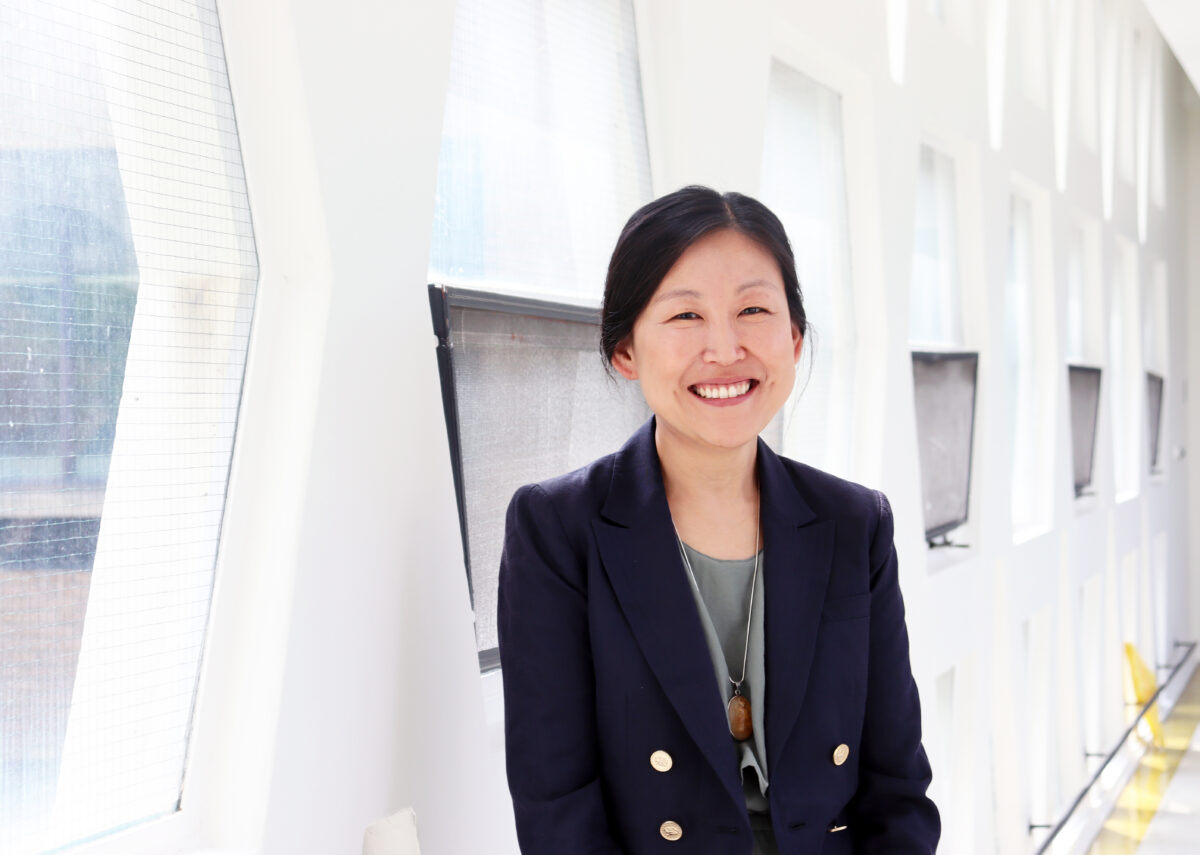Rosie Yoon chose to become a Nurse Practitioner (NP) and later a nursing scholar focused on health services research, because she firmly believes that nursing is rooted in action.
The three time-graduate of U of T, and alumna of Bloomberg Nursing, is a proud advocate for the implementation of integrated care and is thrilled to be returning to her alma mater as a new faculty member. Yoon is returning to the Lawrence Bloomberg Faculty of Nursing as an Assistant Professor (Tenure Stream) beginning her new role on July 1.
“I’m so lucky to be back here, and I’m looking forward to growing my area of research with colleagues and students,” says Yoon. “I have always felt that nurses are practice-driven and action-driven, and my research reflects that. When there is a lot of upheaval and division around the world, nurses are well-positioned to rise to the call and work towards creating better healthcare- and ultimately, a better society.”
Throughout her work as a practicing NP in the field of addictions and mental health, Yoon describes routinely seeing patients fall through the cracks of a fragmented and siloed healthcare system. Caring for women facing significant substance use challenges, gender-based violence, and co-occurring mental health issues, prompted her to explore ways to improve integrated care and access to resources for what she calls structurally vulnerable groups.
“I really wanted to understand how systems can become better integrated to support care for people who are vulnerable and experience upstream inequities. These can be related to physical structures such as housing as well as policies,” says Yoon.
Her leading program of research focuses on three specific areas which include the integration of care for women with substance use challenges, and integrated care for structurally vulnerable folks, as well as the psychological health and safety of the nursing workforce.
These areas form the foundation of Yoon’s Better Together Research Hub, a unit she is excited to bring to Bloomberg Nursing. The hub includes graduate and undergraduate nursing students, as well as students from other disciplines who are interested in implementation science.
“I’m looking forward to building a village around this hub and increasing awareness for the role of implementation science in health care practice,” says Yoon.
Some of Yoon’s current research explores the need for improved translation tools for older immigrants living in long-term care. As part of her commitment to embedding equity into integrated care models, Yoon is working with a team of interdisciplinary researchers to find innovative ways to address ageism and promote equitable communication – using digital translation tools such as mobile apps that are designed for older immigrant adults.
“This is a perfect example of a structural vulnerability, where older immigrant adults who may not speak either of the official languages, or who face cognitive decline, are reduced to communicating through pictures or rudimentary hand gestures,” says Yoon.
As Yoon continues to advocate for a person-centered approach to her nursing scholarship, she is also developing a new course for the undergraduate curriculum – on mental health and substance use -set to begin in the Fall of 2026.
“Being able to reflect the core competencies that will prepare nurses to support patients across the lifespan is a true joy for me,” says Yoon.
